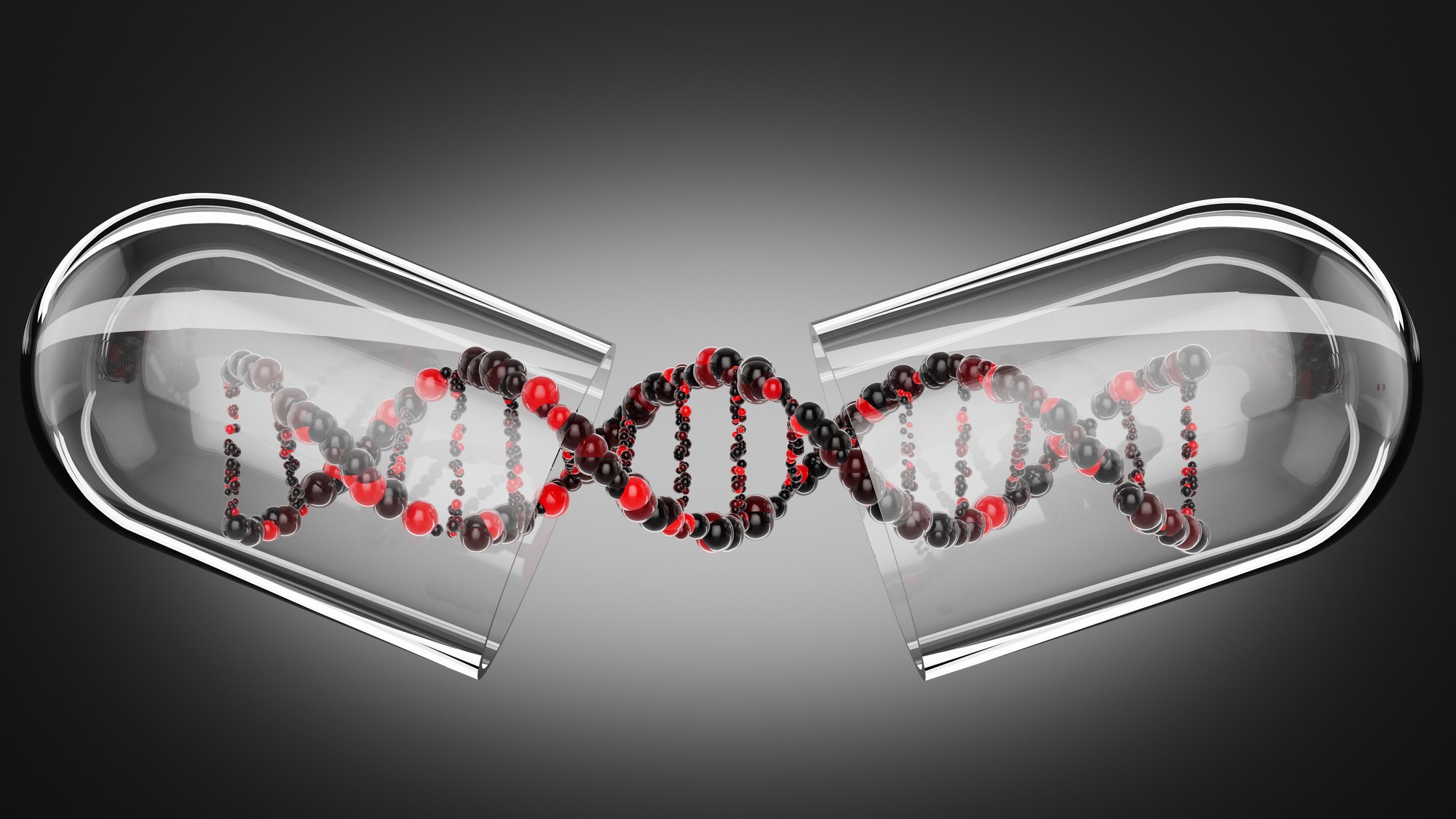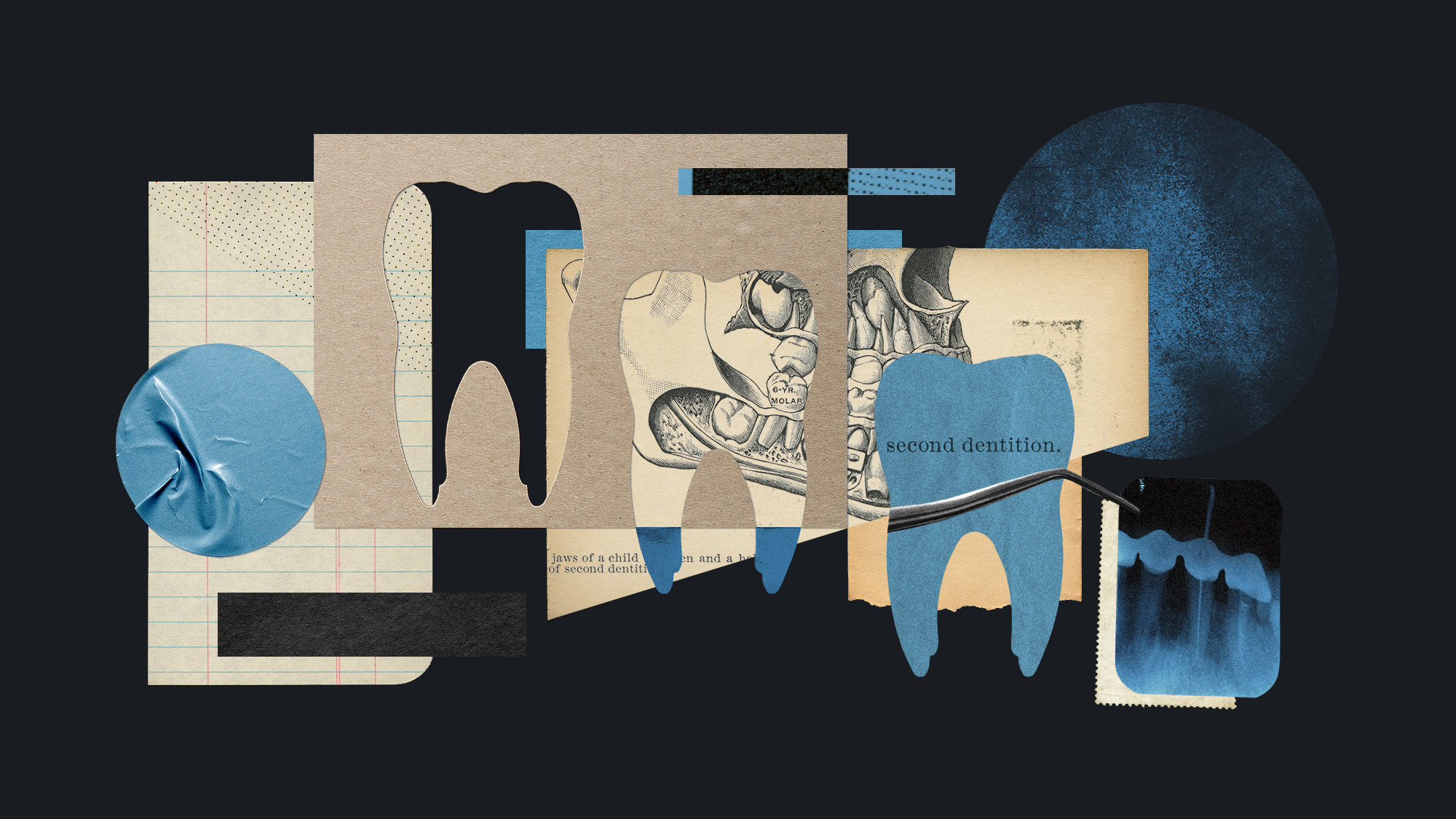The pros and cons of 'opt out' organ donation
Family refusal on the rise, due to 'ambiguity' of presumed consent legislation

A free daily email with the biggest news stories of the day – and the best features from TheWeek.com
You are now subscribed
Your newsletter sign-up was successful
Despite the introduction of legislation aimed at increasing the rate of organ donation, families are increasingly refusing to donate their relative's organs – often because they're not clear what their loved one would have wanted.
Since Northern Ireland changed its law in 2023, in all parts of the UK it is now assumed that all adults automatically become potential organ donors when they die, unless they have opted out or were members of an "excluded group". The change was intended to make organ donation easier; previously, only those who had formally expressed their consent could be considered donors.
But ultimately "families have the final say", said the BBC. And the consent rate fell to 61% in the 12 months to April 2024, down from 69% four years ago. A little over 13% of family refusals were due to relatives "being unsure if the person would have agreed" to being a donor. Meanwhile, the transplant waiting list is at a "10-year-high".
The Week
Escape your echo chamber. Get the facts behind the news, plus analysis from multiple perspectives.

Sign up for The Week's Free Newsletters
From our morning news briefing to a weekly Good News Newsletter, get the best of The Week delivered directly to your inbox.
From our morning news briefing to a weekly Good News Newsletter, get the best of The Week delivered directly to your inbox.
What is automatic organ opt-out?
Before the law changed, organs and tissues could only be taken if the deceased had joined the Organ Donor Register (ODR) or informed their relatives before their death that they wished to donate. Now, anyone over 18 has to opt out if they do not want to be an organ donor, effectively creating a presumed consent system.
The ODR still exists for those who still expressly want to register their consent. And, "since the change in organ donation legislation, opt-in registrations on the NHS Organ Donation Register have steadily increased to more than 28 million people in the UK, which is encouraging," the NHS told the BBC in a statement.
As of last year, about 42% of the population was on the ODR but that's still not enough to effect major change: there are still 8,000 people on the UK's transplant waiting list, and last year, more than 415 died while waiting for a transplant.
What is family refusal?
Regardless of the deceased person's wishes or legislation, families of those donating their organs are often consulted and are still able to withdraw consent on behalf of their loved ones. Family refusal is currently the "biggest obstacle to donation", says the NHS.
A free daily email with the biggest news stories of the day – and the best features from TheWeek.com
The overall rate of family consent is around 61%, according to NHS Blood and Transplant's 2023 report, but that increases to 89% if the person had expressed their wishes on the ODR. There is still a stark difference in overall consent rates for white people (about 70%) and people from ethnic minority groups (about 39%), with family refusal one of the main reasons why.
Here are the main pros and cons of the current 'opt-in' system for organ donation:
Pro: avoids 'inaction' confusion
Under the old opt-in system, an individual who would have wanted to be a donor but never explicitly registered their preference may end up not being a donor due to their own "inaction" rather than any unwillingness, said Medical News Today. Having an opt-out system avoids this "false negative".
Con: can increase family refusal
If people haven't explicitly communicated their wishes to families, the presumed consent of the opt-out system acts as a "weaker signal of preference" than the active consent of an opt-in system, said researchers at the Max Planck Institute for Human Development in a 2024 paper published in Public Health.
This adds "uncertainty to a family's deliberations on whether to donate their deceased relative's organs", which means families are "more likely to refuse consent".
Pro: is associated with higher donation rates
Researchers from the University of Nottingham, University of Stirling and Northumbria University analysed organ donation systems in 48 countries for 13 years: 23 of them had an opt-in system, and 25 an opt-out system. Donations were higher in opt-out countries than opt-in countries, according to their study, published in 2014.
However, the study was "limited by not distinguishing between different degrees of opt-out legislation, with some countries requiring permission from next-of-kin", said Medical News Today.
Con: doesn't increase donation rates significantly
Opt-out countries do "tend to have higher donation rates", but there is "no conclusive evidence that this is caused by the policy itself", once you take family consent into account, concluded a study published in the BMJ in 2022, which looked at data from 21 countries.
The study also found that, in five countries that switched from an opt-in to an opt-out system, the number of donations didn't increase.
To improve donation rates, opt-out countries need to invest in transplant services and healthcare infrastructure, public awareness campaigns, and encourage individuals to talk about their donation wishes with relatives, the study authors argued.
Pro: could reduce racial discrepancy
There are significantly more people from Black, Asian and minority ethnic communities waiting for an organ transplant. The best outcome for most transplant patients comes from "a donor of the same ethnicity", said the NHS – but a far lower number of people from ethnic minorities are registered as donors.
It was hoped that the introduction of the new UK law would reduce this discrepancy and, so far, it appears to have done so. Last year, the number of ethnic minority patients who received a life-saving organ transplant hit a five-year high, according to NHS figures.
Con: does not increase public awareness
The BMJ study suggested that people's awareness of the consent model was lower in opt-out countries than in opt-in countries.
This "raises ethical concerns" regarding "respect of individual autonomy", the authors wrote. A majority of the public "tend to prefer opt-in and mandatory choice to opt-out, when two or more options are offered".
Harriet Marsden is a senior staff writer and podcast panellist for The Week, covering world news and writing the weekly Global Digest newsletter. Before joining the site in 2023, she was a freelance journalist for seven years, working for The Guardian, The Times and The Independent among others, and regularly appearing on radio shows. In 2021, she was awarded the “journalist-at-large” fellowship by the Local Trust charity, and spent a year travelling independently to some of England’s most deprived areas to write about community activism. She has a master’s in international journalism from City University, and has also worked in Bolivia, Colombia and Spain.
-
 El Paso airspace closure tied to FAA-Pentagon standoff
El Paso airspace closure tied to FAA-Pentagon standoffSpeed Read The closure in the Texas border city stemmed from disagreements between the Federal Aviation Administration and Pentagon officials over drone-related tests
-
 Political cartoons for February 12
Political cartoons for February 12Cartoons Thursday's political cartoons include a Pam Bondi performance, Ghislaine Maxwell on tour, and ICE detention facilities
-
 Arcadia: Tom Stoppard’s ‘masterpiece’ makes a ‘triumphant’ return
Arcadia: Tom Stoppard’s ‘masterpiece’ makes a ‘triumphant’ returnThe Week Recommends Carrie Cracknell’s revival at the Old Vic ‘grips like a thriller’
-
 Metal-based compounds may be the future of antibiotics
Metal-based compounds may be the future of antibioticsUnder the radar Robots can help develop them
-
 A real head scratcher: how scabies returned to the UK
A real head scratcher: how scabies returned to the UKThe Explainer The ‘Victorian-era’ condition is on the rise in the UK, and experts aren’t sure why
-
 How dangerous is the ‘K’ strain super-flu?
How dangerous is the ‘K’ strain super-flu?The Explainer Surge in cases of new variant H3N2 flu in UK and around the world
-
 RFK Jr. sets his sights on linking antidepressants to mass violence
RFK Jr. sets his sights on linking antidepressants to mass violenceThe Explainer The health secretary’s crusade to Make America Healthy Again has vital mental health medications on the agenda
-
 The ‘menopause gold rush’
The ‘menopause gold rush’Under the Radar Women vulnerable to misinformation and marketing of ‘unregulated’ products
-
 How medical imposters are ruining health studies
How medical imposters are ruining health studiesUnder the Radar Automated bots and ‘lying’ individuals ‘threaten’ patient safety and integrity of research
-
 Scientists are speeding up evolution
Scientists are speeding up evolutionUnder the radar Proteins can evolve in minutes
-
 The science behind regrowing missing teeth
The science behind regrowing missing teethUnder the Radar A series of recent breakthroughs may offer those with dental issues something to chew on